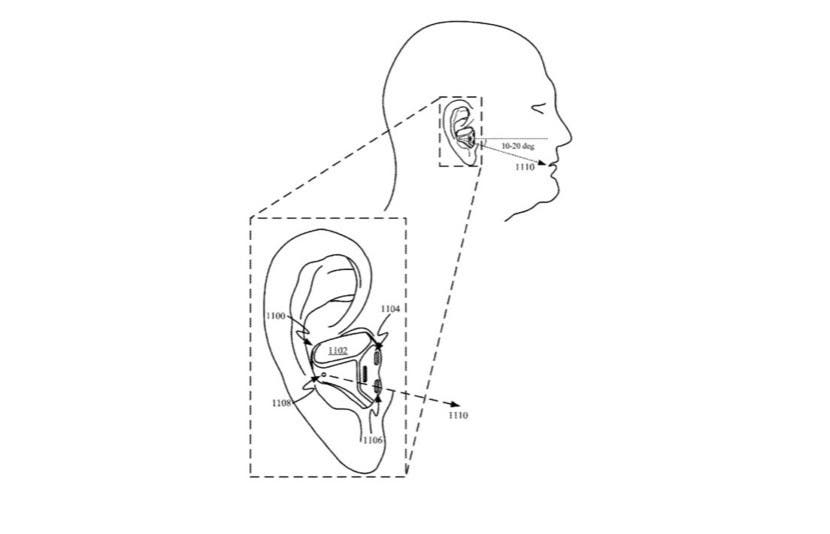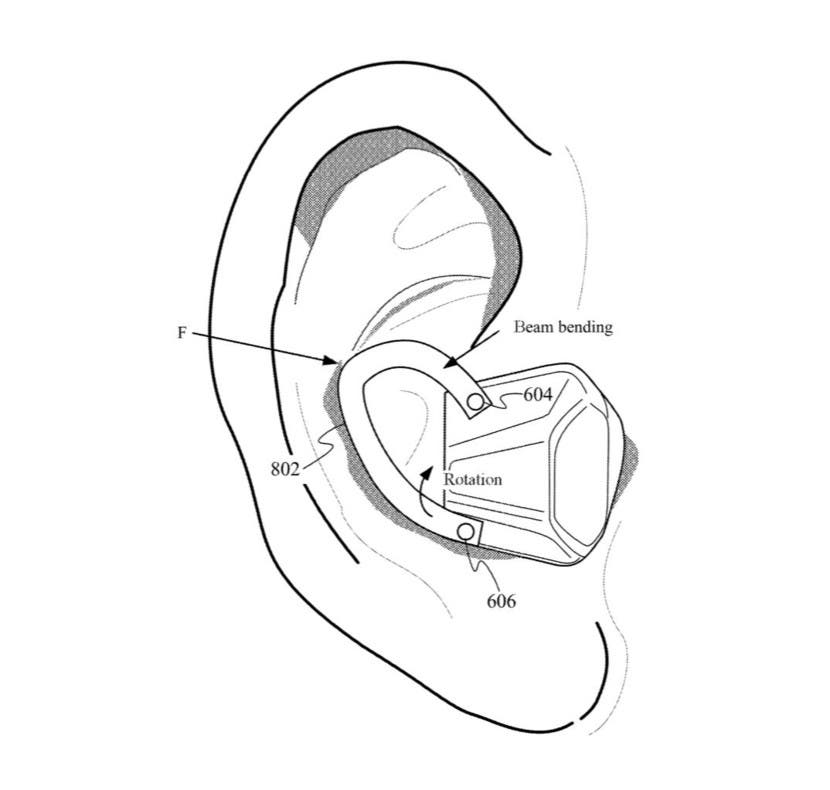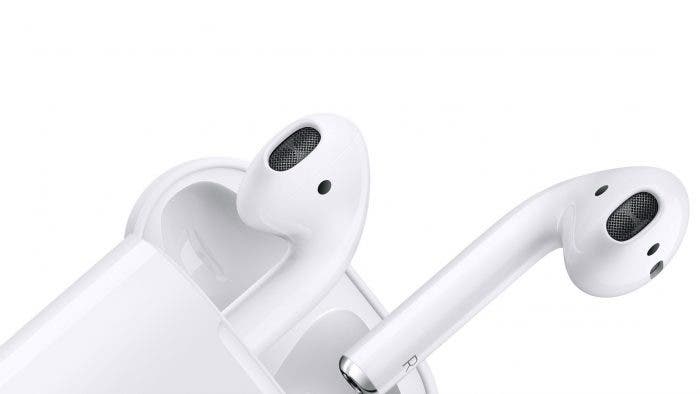Apple drives the true wireless headset market with Airpods and it is not surprising that it is constantly working to find a way to improve the product. Its patents can offer useful clues to establish in which direction the evolution of the product will move.
The new patent published today by the USTPO, after the application presented last July by the Cupertino company, concerns earphones with integrated biometric sensors.
Users of electronic devices have shown a growing interest in monitoring biometric data. Biometric sensors often need to be placed close to or in close contact with the skin. To properly measure and track parameters, such as heart rate, VO2 and temperature.
Asking a user to place a sensor in direct contact with the skin to monitor these parameters can be excessively burdensome. Making it more difficult to adopt this technology. Therefore, procedures for measuring biometric parameters in a more discreet manner are desirable.
Apple patent reveals Airpods with Biometric sensors

The solution is to integrate the sensors directly into the earpiece – one or more – says the patent. At least one of which is designed to detect the biometric parameters.
Among the sensors mentioned in the patent is the PPG (photoplethysmogram). For the detection of heart rate and VO2 max (the maximum level of oxygen consumed). Alongside the GSR (galvanic skin response), useful for determining the level of stress. Including those that allow even more accurate measurements of cardiac parameters. Such as EKG for the electrocardiogram and ICG for impedance cardiography.

These are functions that today are also performed by smartwatches and smart bands. In the future, they could enrich the standard equipment of headsets such as AirPods. Apple seems to be committed to renewing its popular earphones by introducing an in-ear model with active noise reduction capabilities – clues to this end are contained in the recent beta of iOS 13.2.





